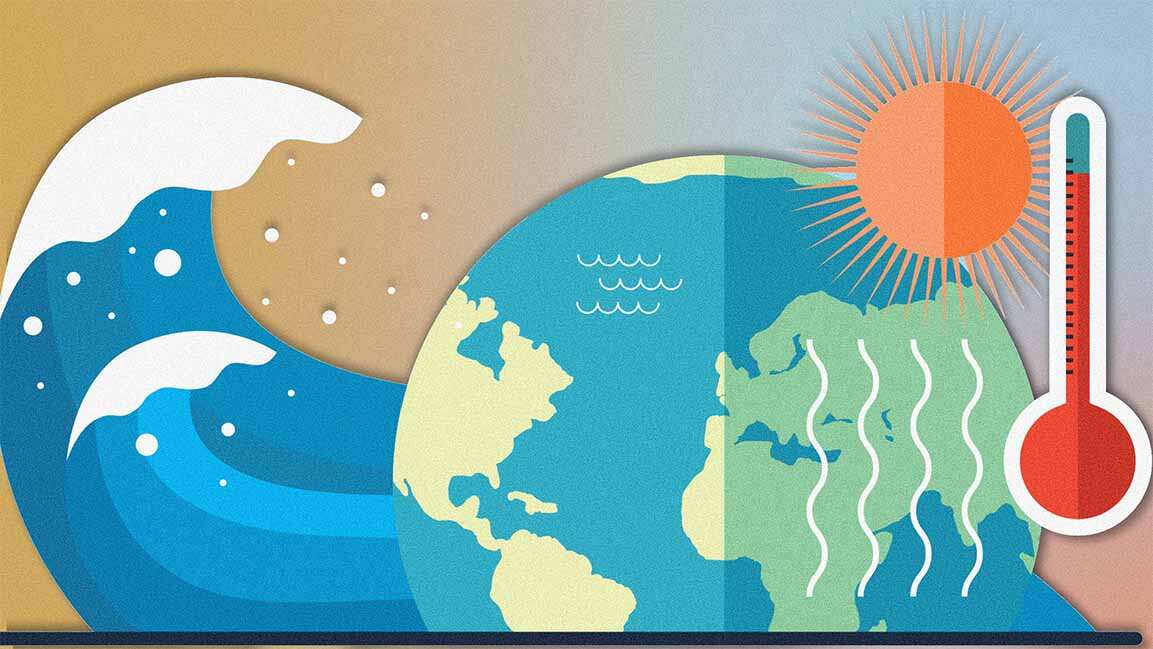- | 9:00 am
Is the Gulf region experiencing warmer winters? How will it impact the ecosystem?
Warmer winter temperatures have been documented in the Gulf in recent years, with negative consequences on the population and ecosystem

Having lived in Dubai for almost two decades, I recall foggy and chilly winters. Temperatures would drop low enough to warrant the use of coats and hoodies. However, in recent years, the air has only felt chilly far into January, even though winter technically begins here in November-December.
The Gulf region is known for its sweltering summers, but are the winters also growing warmer?
According to the National Centre of Meteorology’s (NCM) Annual Climate Assessment 2022, the mean monthly temperature for the winter months of 2022 was reportedly higher than the long-term average (2003-2022). In fact, January’s lowest monthly mean temperature of 19.1°C was 0.9°C higher than the long-term average.
Based on The World Meteorological Organization Lead Centre for Long-Range Forecast (WMNOLC LRF), the NCM generates the monthly/seasonal climate forecast for the Arabian Peninsula and UAE 2024. Seasonal climate predictions are produced by these top climate centers globally, using fully linked ocean-atmosphere general circulation models. From January 2024 to March 2024, characterized as the winter months of 2024, the Arabian Peninsula’s temperatures are predicted to be “above normal (around 0.5C ~ 1.5C)”. A similar prediction of above-normal temperatures is cited for the UAE.
IMPLICATIONS OF WARMER WINTER
As the Arabian Peninsula’s temperatures rise throughout the winter, it’s critical to understand its implications for people and the ecology.
“The winter temperature is critical for vegetation in this region since it is when it achieves its peak biomass,” says Dr. Kaoru Kakinuma, a research scientist at the Centre for Desert Agriculture at King Abdullah University of Science and Technology. “Warmer winters could extend the growing season, benefiting some plant species, but they could also disrupt ecological cycles and stress certain plants and animals.”
He said changes in plant phenology caused by warmer winters might have a domino impact on the ecosystem. Plants that bloom earlier or later than normal might impact pollinators and other creatures that rely on them. Plant development and phenology changes can also influence soil quality and nutrient cycling in the ecosystem.
Emphasizing the negative impacts of rising winter temperatures, Dr. Abdul Malek says high temperatures in such a water-stressed environment can impact agricultural patterns, resulting in future food security issues.
Warming would increase energy use, necessitating more air conditioning and releasing more heat into the atmosphere. Extreme heat occurrences in the region are anticipated to become increasingly prevalent.
Fish reproduce throughout the winter, and rising temperatures will impact fisheries and marine biodiversity. The distribution and composition of fish species can change due to changes in water temperature, which might have major effects on the environment and the economy.
This change may impact marine ecosystem health as a whole in addition to the availability of seafood for local consumption and international export, says Dr. Kakinuma.
REASONS FOR RISING TEMPERATURE
Multiple factors, both man-made and natural, are to blame for rising winter temperatures.
“Increased greenhouse gases are warming the world, and this warming response is not homogeneous across the globe as some places warm more than others. For example, the Arctic and MENA regions,” says Dr. Malek. “Due to increased temperatures over the Middle East region in the recent past, the humidity has increased, further exacerbating the climatic conditions.”
Additionally, according to Dr. Malek, aside from the warming impacts caused by humans, endogenous climatic variability also contributes to regional temperature fluctuations.
For example, during the positive phase of the Atlantic Multidecadal Oscillation (AMO), winters in the MENA area are warmer than usual. As AMO started its positive phase in 1990, it might be one of the reasons why Dubai’s winters are warmer than they were ten years ago.
Is it possible to halt or reverse these cascading impacts of rising winter temperatures?
In a nutshell, Dr. Malek suggests that the ultimate solution is to stop generating greenhouse gases, but that this cannot be accomplished overnight.
The Paris Agreement should be strictly adhered to by all countries, and greenhouse gas emissions should be minimized. Apart from a notable decrease in greenhouse gas emissions, there should be a greater focus on renewable energy sources like solar and wind power.
It is necessary to create more energy-efficient technologies and promote electric car usage. To increase the amount of carbon captured and the cooling benefits they provide, forests must be preserved and replanted.
Similarly, Dr. Kakinuma indicates that limiting global warming to 1.5 degrees Celsius rather than 2.7 degrees Celsius might result in dramatically different consequences (number of people exposed to unprecedented heat). This emphasizes the critical requirement for immediate action in temperature control.
Changing one’s eating habits and changing one’s energy use are essential for lowering CO2 emissions. Food production and consumption have a considerable influence on CO2 emissions.
Adopting a lower-carbon footprint diet, such as limiting meat intake and increasing plant-based meals, can help to reduce emissions. Food waste reduction and sustainable agriculture methods are also crucial.
The summer months in the Gulf are already scorching, with temperatures reaching 50 degrees Celsius on certain days. Due to high temperatures and humidity, the Gulf region is projected to become increasingly difficult to live in, particularly in coastal locations. It is critical to focus on discovering strategies to minimize greenhouse gas emissions, such as upgrading infrastructure (less concrete and more green) and designing buildings with lower energy demands.







































